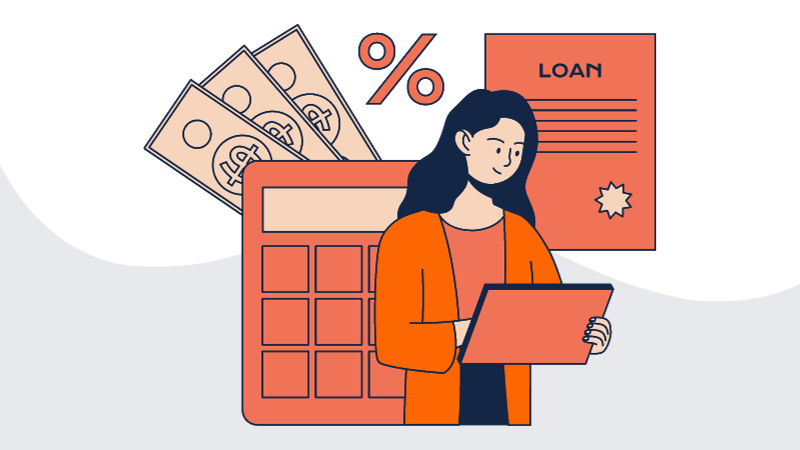-
Introduction: Why Pre-closing a Loan Is a Big Decision
In a world where debt is almost unavoidable — from personal loans and home loans to car EMIs — paying off your loan early sounds like a dream move, right? But like most things in finance, loan pre-closure (also called foreclosure) is a double-edged sword.
In India, 2025 sees more borrowers opting for early repayments due to rising financial awareness, bonus payouts, and side incomes. But does early repayment help your credit score or hurt it? Is there a penalty involved? Let’s break it all down.
-
What Is Loan Pre-closure?
Loan pre-closure or foreclosure means repaying your entire outstanding loan amount before the agreed-upon tenure ends. This is typically done in one lump sum and closes the loan contract early.
🔸Example: If you took a personal loan for 5 years and repay it fully in the 3rd year, that’s called a pre-closure.
Types of Early Repayment:
🔸Part-prepayment: Pay a chunk of the principal but continue the EMIs (EMI may reduce)
🔸Full pre-closure: Settle the entire loan in one go and end the EMI cycle
✅ Available on most loans: personal loans, home loans, auto loans, business loans, etc.
-
Benefits of Loan Pre-closure
✅ Save on Interest: The biggest benefit — you stop paying interest for the remaining tenure. This can save thousands or even lakhs, especially on long-tenure loans.
✅ Improves Loan Eligibility: With no active EMIs, your debt-to-income ratio improves — making you eligible for larger or multiple loans.
✅ Mental & Financial Relief: It’s psychologically satisfying to live debt-free, and it frees up your cash flow for investing or saving.
✅ Credit Score Boost (Usually): Once the loan is marked as “Closed” in your credit report, it shows financial discipline — a positive for future lenders.
-
Drawbacks & Downsides of Pre-closure
✖ Prepayment Penalty: Some lenders (especially for fixed-rate loans) charge 2–5% of the outstanding amount as a pre-closure fee.
✖ Impact on Credit Mix: If you close your only loan account, your credit mix becomes weaker (too many credit cards or no active credit lines), which may slightly reduce your credit score.
✖ Lost Tax Benefits: For home loans or education loans, pre-closure may end your eligibility for tax deductions under Sections 80C or 24(b).
✖ Liquidity Drain: Paying off a loan with all your savings can leave you cash-strapped for emergencies.
-
How Pre-closure Affects Your Credit Score
Contrary to popular belief, pre-closing a loan doesn’t always shoot your credit score up instantly. Here’s how it can go either way:
✅ Positive Impact:
🔸Loan marked as “Closed” shows you repaid your full dues
🔸Reduces your overall credit burden
🔸Improves chances for fresh loan approvals
❌ Possible Negative Impact:
🔸If it’s your only active loan, closing it might reduce your credit mix (affects score negatively in the short term)
🔸If done too soon after loan approval, lenders may view it as instability
📊 Net Result: In most cases, credit score improves over time post pre-closure, especially if you maintain other healthy credit accounts.
-
When Should You Consider Pre-closure?
✅ Good Time to Pre-close:
🔸You’ve received a bonus, inheritance, or lump sum income
🔸You’re nearing retirement and want to be debt-free
🔸Interest burden is too high compared to current returns on investments
❌ Avoid Pre-closure If:
🔸Prepayment penalties are too high
🔸You’ll exhaust all your savings for it
🔸The loan is giving you tax benefits (home, edu loan)
-
Step-by-Step Process to Pre-close Your Loan in India
🔸 Contact your lender and request a pre-closure quote (includes outstanding principal + charges)
🔸 Visit the branch or app portal with ID proof, loan details, and payment instrument
🔸 Make the full payment (preferably via NEFT/RTGS or cheque)
🔸 Collect the loan closure certificate, no dues certificate, and updated account statement
🔸 Ensure the status is updated as “Closed” in your CIBIL within 30–45 days
✅ Tip: Monitor your credit report post-closure to confirm everything is correctly reflected
-
Pre-closure Charges by Loan Type (Indicative 2025 Rates)
| Loan Type | Typical Charges (if applicable) |
|---|---|
| Personal Loan | 2% to 5% of outstanding amount |
| Home Loan | Nil for floating rate (as per RBI), 1–2% for fixed rate |
| Car Loan | 3% to 6% (depends on lender) |
| Business Loan | 2% to 4% (negotiable) |
✅ Check your loan agreement — some digital lenders offer zero pre-closure charges after 12 months.
-
Final Thoughts: Pre-close Smart, Not Just Fast
Loan pre-closure is not just a feel-good financial move — it’s a strategic decision that should balance:
🔸 Interest savings
🔸 Credit score impact
🔸 Tax implications
🔸 Your emergency fund status
If you’ve planned for it and the numbers add up, go for it — being debt-free is always a flex. But if you’re just reacting emotionally or draining savings mindlessly, hit pause and reassess.
Whether you pre-close or not, stay consistent, pay on time, and keep your credit health in top shape.




